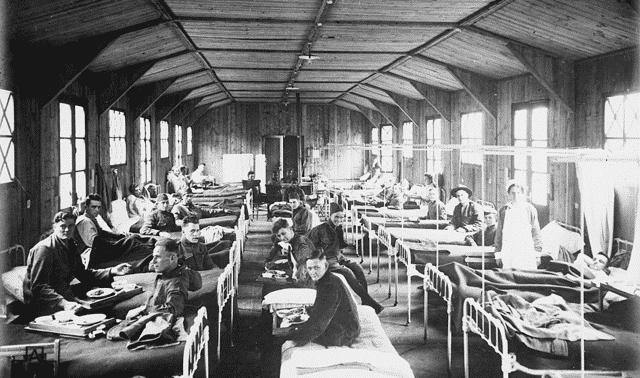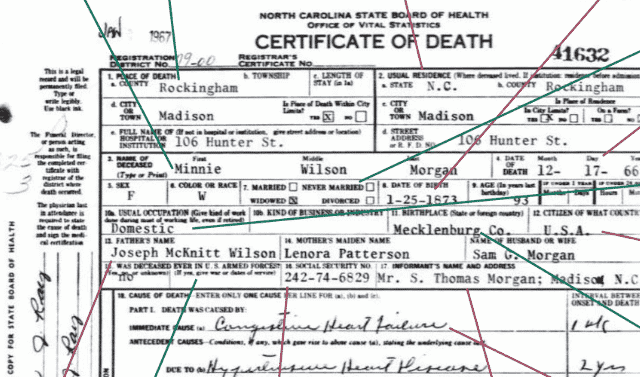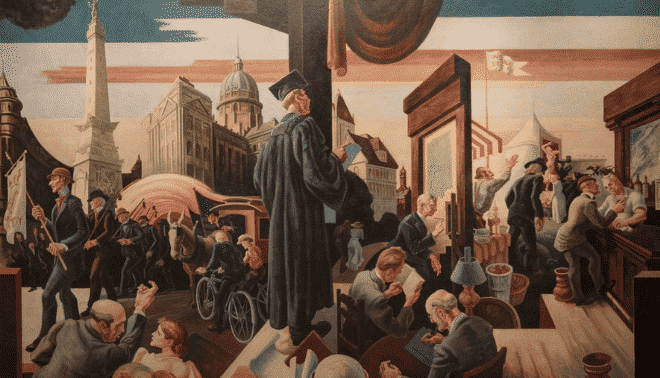Sign up for the Family Tree Newsletter! Plus, you’ll receive our 10 Essential Genealogy Research Forms PDF as a special thank you.
Get Your Free Genealogy Forms
"*" indicates required fields
Did your ancestor suffer from King’s evil, St. Vitus dance, painter’s colic or—God forbid—bloody flux? If so, you may be conjuring up images of Great-great Grandpa suddenly coming down with a royal case of devilishness or bawling as he put a new coat of paint on the barn. But archaic medical terms have evolved since the days of yore.
Many old terms for diseases and ailments have been replaced by modern medical names. King’s evil, for example, is swollen neck glands (caused by tuberculosis). St. Vitus dance, sometimes called chorea or viper’s dance, was the term for nervous twitches. Painter’s colic, also known as Devonshire colic and dry bellyache, is lead poisoning. And bloody flux was another name for dysentery. To help you make sense of the ailments and diseases you find mentioned in your family medical records, here are some common antiquated terms and what they mean by today’s standards (keeping in mind that the diagnosis may not have been accurate):
- ablepsia: blindness
- acute angina: sore throat
- apoplexy: paralyzed by stroke
- bad blood, Lues disease, French or great pox: syphilis
- Bethlehemite: mentally ill person
- biliousness: jaundice caused by liver disease
- black death, camp fever or ship’s fever: typhus
- brain fever: meningitis
- child bed fever: infection following childbirth
- cholelithiasis: gall stones
- congestive fever or chills: malaria
- consumption, African consumption, lung sickness or galloping consumption: tuberculosis
- coryza or catarrhal: cold or allergies
- costiveness: constipation
- croup: laryngitis, diphtheria or strep throat
- dengue: infectious fever common in East Africa
- dyspepsia: heartburn, indigestion or symptoms
- falling sickness or caduceus: epilepsy
- fatty liver: cirrhosis
- green sickness or fever: anemia
- grippe, grip or lagrippe: influenza (the flu)
- infantile paralysis: polio
- lumbago: back pain
- lung or winter fever: pneumonia
- mormal: gangrene
- neuralgia: general term for discomfort (example: neuralgia in the head is a headache)
- puerperal exhaustion: death due to childbirth
- putrid fever, chin cough, bladder in throat, malignant sore throat or kruchhusten: diphtheria or whooping cough
- quinsey: tonsillitis
- screws: rheumatism
- thrush or aphtha: childhood disease; spots on mouth, lips and throat
For more translations of old medical terms:
ADVERTISEMENT
Cyndi’s List – Diseases and Medical Terms
If you would like an explanation of today’s medical terms, check out the Mayo Clinic’s glossary of Diseases and Conditions A-Z for definitions and pronunciations.
Related Reads
ADVERTISEMENT









